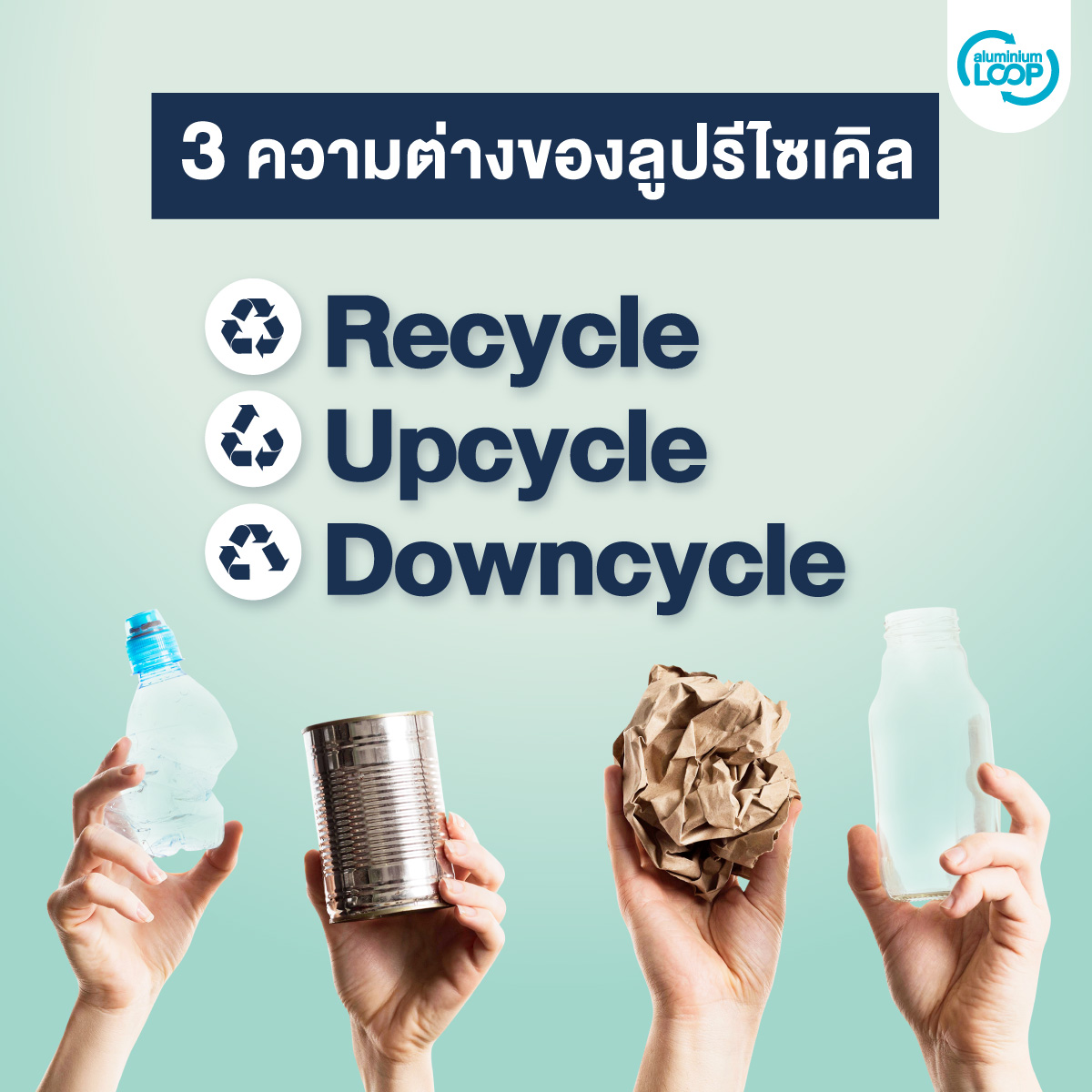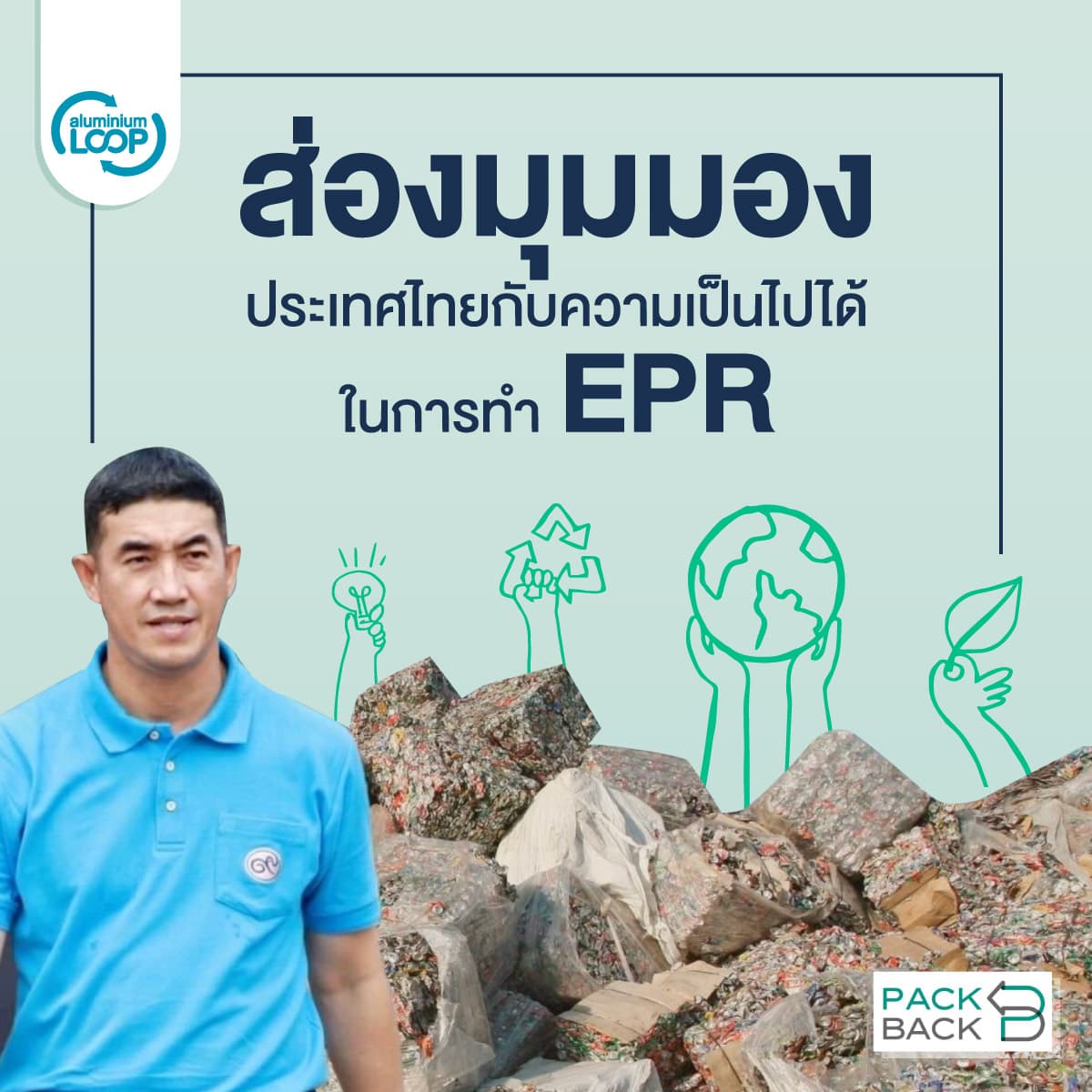
3 Differences of Recycling Loops
Recycle, Upcycle, and Downcycle – how do these 3 processes differ? Let’s learn together to manage used materials correctly and appreciate their value.
Even the “Tokyo Olympic 2020” is committed to “sustainability”
The “Tokyo Olympic 2020” in Japan has readied its designs and operations, firmly sticking to the principle of minimal environmental impact. Every design aspect emphasizes being “eco-friendly.”
From the logo, mascot, torch, medal podiums, medals, athlete uniforms, to the athletes’ village and various equipment.
Many aspects showcase the New Normal lifestyle. For instance, the decision for this Olympics’ mascot was made by a committee of “children,” based on the idea that these children will be the adults using natural resources in the future.
The medal podiums were also made from hundreds of thousands of recycled laundry detergent bottles.
The “torch” was crafted from recycled aluminium, with the top part (the flame) designed as a five-petaled cherry blossom.
The torchbearers’ uniforms were made from recycled plastic bottles.
The gold, silver, and bronze medals were made from over 6 million old mobile phones and computers collected for melting and recycling. Even the medal ribbons came from recycled fibers.
The most astonishing part is the “Athletes’ Village,” spanning approximately 5,300 square meters, built using over 4,000 wooden beams collected from 63 cities across Japan. Each beam was stamped with its city of origin to be correctly returned after the Olympics for local reuse.
All the beds in the athletes’ village were made from recycled lightweight hardboard that can be easily dismantled and reassembled.
This concept even extended to the “national kimonos” worn by dozens of beauty queens, with each kimono fabric featuring drawings of icons and symbols representing the countries participating in the sports, making the kimonos even more elegant.
The global event “Tokyo Olympic 2020” in Japan was filled with stories of Japan’s intricate and profound meaning, blending modernity and culture seamlessly. The underlying philosophy of the designs was “Hope,” symbolizing the world’s “hope” for a sustainable present and future.
In recent years, the United Nations has set guidelines for “Sustainable Development Goals” (SDGs) covering 17 crucial aspects of global coexistence, from quality of life, economy, society, environment, and more, to collaborative development among countries towards these 17 “sustainable goals”.
There’s also a framework for “Responsible Investment,” emphasizing the importance of considering environmental, economic, social, and governance factors in investment decisions and operations.
Sustainable resource management often relies on the “3R” concept: Reduce, Reuse, and Recycle, initiating projects that drive biological, circular, and green economies, or the “BCG Model,” for efficient resource utilization with participation from all sectors.
Today, activities impacting our world must adhere to “sustainability” principles, guided by the concepts of “Green” and “Sustainability.”!


Recycle, Upcycle, and Downcycle – how do these 3 processes differ? Let’s learn together to manage used materials correctly and appreciate their value.

Waste in Thailand has a significant impact on the environment. How should we solve this issue? What methods can we use, and who needs to take responsibility?

With the current global trend towards sustainable development, how do aluminium cans contribute to sustainability from an SDGs perspective?